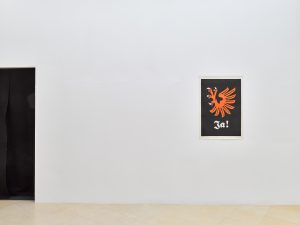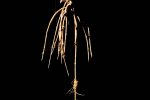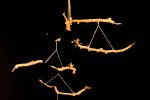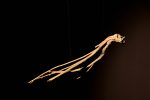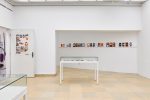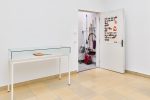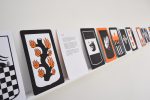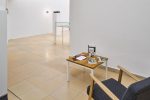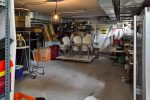OPTIONS
Riccardo Giacconi
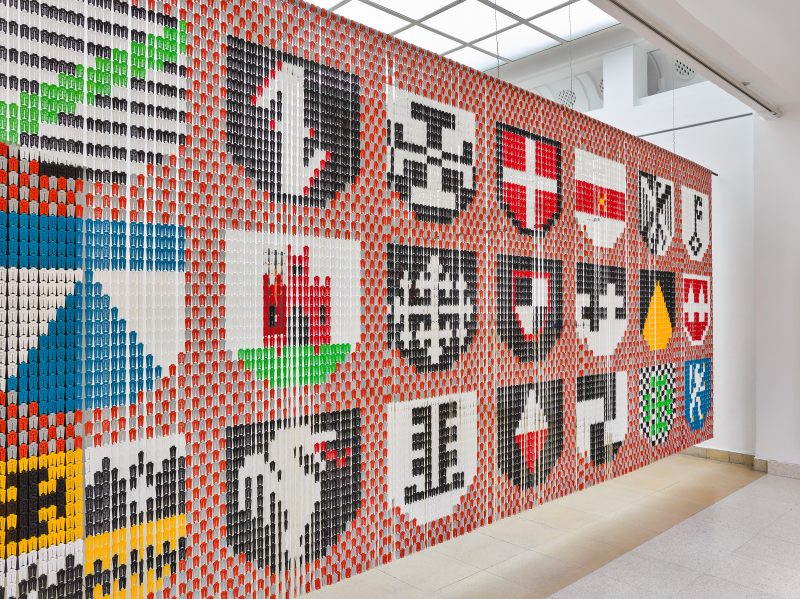
As a research-based body of work, OPTIONS takes its cues from the events between 1939 and 1943, when the native Germanspeaking people of South Tyrol were given the option of either emigrating to neighboring Nazi Austria (and other Third Reich territories) or remaining in Fascist Italy and being forcibly integrated into the mainstream Italian culture, thereby losing their language and cultural heritage. This system, enforced after an agreement between Mussolini and Hitler, was called the “Option Agreement” (Option or Südtiroler Umsiedlung).
This project stems from research into archive and propaganda materials from the era. Riccardo Giacconi studied posters, leaflets, newspaper articles and political pamphlets from and about South Tyrol. “Options” also addresses the aftermath of the Option Agreement, including episodes of tension, conflict and terrorism between communities in South Tyrol, making use of archival materials and an extensive research in situ, including interviews with historians, activists, politicians, writers and various practitioners. Taking the South Tyrolean territory and the frontier between Italy and Austria as a case study, “Options” questions ideas of citizenship, borders, identity, language communities,
Heimat (homeland), nativism, minority, and migration. The Option Agreement period and its aftermath may serve as a paradigm of how such ideas are constructed, manipulated, instrumentalized, fictionalized and revoked following whims of institutions of power
– and of how such ideas result in producing concrete, dramatic and indelible consequences on people.
The project establishes resonances between those ideas – and the way they were used in the linguistic and visual discourse of the Option Agreement period – and the use of the same ideas in contemporary political discourses in Europe. In this sense, “Options” is not configured as historical investigation, but as a constellation between two moments in time – as a commentary on today’s European political discourse through the lens of a past event. (The publication „Options“ (2020) was published by Rorhof, Bolzano.)
OPTIONS is part of a series entitled Dancing at the Edge of the World, curated by Petra Poelzl.
RICCARDO GIACCONI has studied fine arts at the IUAV University of Venezia. His work has been exhibited in various institutions, such as Grazer Kunstverein (Graz), ar/ge kunst (Bolzano), MAC (Belfast), WUK Kunsthalle Exnergasse (Vienna), FRAC Champagne-Ardenne (Reims), tranzitdisplay (Prague), Fondazione Sandretto Re Rebaudengo (Turin) and the 6. Moscow International Biennale for Young Art. He was artist-in-residence at the Centre international d’art et du paysage (Vassivière, France), lugar a dudas (Cali, Colombia), MACRO Museum of Contemporary Art of Rome, La Box (Bourges, France) and Künstlerhaus Büchsenhausen (Innsbruck, Austria). He presented his films at several festivals, including the New York Film Festival, Venice International Film Festival, International Film Festival Rotterdam, Visions du Réel and FID Marseille, where he won the Grand Prix of the International Competition in 2015. He co-founded the collective listening festival ‘Helicotrema’ and the audio storytelling studio ‘Botafuego’.
Kunstpavillon
05.11.2021 – 15.01.2022 extended until 26.03.2022
OPENING: 04.11.2021 | 17.30
The openings took place in the context of the Premierentage 2021.
OPTIONS is an exhibition by Riccardo Giacconi originally conceived for steirischer herbst ’19 — Grand Hotel Abyss and Grazer Kunstverein’s Autumn Season.
Developed in collaboration with: Carteles La Linterna (Cali, Colombia), Franco Citterio (Compagnia Marionettistica Carlo Colla & Figli), Herlyng Ferla, Künstlerhaus Büchsenhausen, Giulia Marzin, Katja Renzler, Ronja Mussbacher, Stadtarchiv/Stadtmuseum Innsbruck, Tiroler Landes- museum, Carolina Valencia Caicedo.
Acknowledgements: Christoph Ampferer, Meinrad Berger, Erica Boito, Nicolò Degiorgis, Riccardo Dello Sbarba, Hannes Egger, Maurizio Ferrandi, Georg Grote, Franz Haller, Hans Heiss, Eva Klotz, Albert Mayr, Lisa Mazza, Giorgio Mezzalira, Georg Mischì, Renate Mumelter, Lukas Morscher, Hannes Obermair, Günther Pallaver, Eva Pfanzelter, Verena Rastner (ar/ge kunst), Iaco Rigo, Carlo Romeo, Andrei Siclodi, Hilary Solly, Michael Stefaner, Leopold Steurer, Ina Tartler (Vereinigte Bühnen Bozen), Martha Verdorfer.
